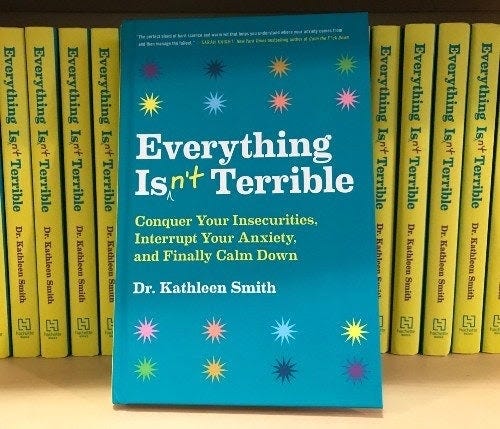“Knowing in part may make a fine tale, but wisdom comes from seeing the whole.” – Seven Blind Mice
One of my three-year-old’s favorite books is a story about seven blind mice who come across an elephant. The first mouse touches the elephant’s foot and thinks he’s found a pillar. The second feels the trunk and calls it a snake. The third finds the tusk and argues that it’s a spear. The debate continues, until the seventh mouse runs up one side of the elephant and down the other. He understands the creature for what it is.
I can’t think of a better metaphor for the work I try to do with individuals and families. When anxiety goes up, we cling to what we sense from our corner. It’s a convincing, satisfying story when there are people to blame and villains to label. But seeing the whole elephant, the whole system as an emotional unit, opens things up. It frees us to shut off our autopilot, to operate with more flexibility when we face challenges.
In a family, seeing only a part of the “elephant” can look like:
Seeing one particular person changing as the only solution.
Trying to drag others towards maturity rather than expressing your own.
Blaming one parent rather than seeing how both operated in the triangle.
Focusing on others’ responsibilities and not your own.
Trying to change poor behavior rather than deciding how to respond to it.
Thinking about the current generation and not previous ones.
Focusing on “personality traits” rather than patterns in relationships.
Not paying attention to the part your own reactivity has played.
Zooming out and seeing the whole system can feel like letting people off the hook or blaming yourself. But that’s not what it’s about. It’s about seeing the predictable, universal, but costly patterns that groups of humans use to calm things down. Whether it’s focusing too much on a child, labeling your partner as the problem, or fighting to make your version of events the only acceptable one.
In the story, the seventh mouse leads the other mice across the elephant until they agree with him. But I don’t think everyone needs to see the whole elephant for change to happen in a family, or in any other group. Only one person needs to be curious enough to observe the game from the top of the stadium, to watch the actions and reactions fit together in patterns across the generations.
Families, organizations, and communities benefit when one person is willing to tinker with their part, and operate with more flexibility and curiosity. When one person summons the courage to act from their own best thinking, rather than the familiar ways we keep things calm or keep each other happy.
Some additional questions:
How have I participated in the patterns my family uses to manage tension? The patterns my workplace uses to manage tension?
When have I avoided when it would have been useful to stay in contact with people?
When did I go along with others instead of determining my own position?
When did I put energy into making others into what I want them to be, rather than putting energy towards being who I need to be?
News from Kathleen
On August 24th, I’ll be speaking at the Family Systems Institute’s annual conference on triangles.
Want to support my free newsletter? Buy me a coffee to keep the thoughts flowing, or share it with a friend.
Want to read more of my writing? You can read old newsletters at my website, or buy my book Everything Isn't Terrible from Amazon, Barnes and Noble, Indiebound, or your local bookstore (best option).
Want a free anxiety journal with the book? Calming Down & Growing Up: A 30 Day Anxiety Journal includes thirty daily prompts to help you reflect on and respond to your anxious behaviors. To receive a copy, just email me your receipt of Everything Isn’t Terrible.
Email me if you’re interested in Bowen theory coaching or want me to speak to your group or workplace. Follow me on Twitter, Facebook, or Instagram.
Want to learn more about Bowen theory? Visit the Bowen Center’s website to learn more about their conferences and training programs. Applications are now open for next year’s training programs!






Forgot to say your Substack has an awesome title!!
I’m writing a wee book on Kedics (any real achievers) and Impister syndrome about ditching the ‘just do this resilience training or yoga’ in favour of therapies that actually work.
It sounds like you’d be an expert in commenting on that if you fancy seeing a brief outline?
Oh my goodness I so see this this!
I’m a Paediatrician offering combined medicine / therapy and see this a lot!!
Working with families is hard. Everyone jokes in Paediatrics that we need to treat the parents. Why is it a joke? I offer therapy to then or the child or together.
There are therapies that work & transform lives.